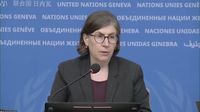As Russia solidifies its control over Kursk following its recent military campaign, public sentiment in Ukraine is sharply divided. The unexpected operation, which saw Ukrainian troops make an incursion into Russian-held territory, ultimately led to a retreat amidst overwhelming challenges. While some perceive this military move as a calculated risk that could bolster morale and political resolve, others contend that it was doomed from the outset, manifesting in significant consequences for civilians.
As of March 22, 2025, Russia has successfully retaken Kursk, a pivotal city that had been the focal point of military operations. Ukrainian forces, having initially launched a surprise attack, are now retreating, prompting intense reflection among Ukrainians about the worth of the operation and its heavy toll on human lives. Debate swirls around whether the operation was justified or if it exacerbated the already tragic human cost involved in the ongoing conflict.
Highlighting the broader humanitarian crisis, a recent report by the United Nations Human Rights Office has added urgency to the discussion. Released on March 21, 2025, the report specifically calls out the suffering of millions of Ukrainian children as a direct consequence of the conflict. "Russia inflicted 'unimaginable suffering' on millions of Ukrainian children and violated their rights since its full-scale invasion of Ukraine began in 2022," it stated. These words echo the sentiments of many Ukrainians who are grappling with the impacts of war on their families and futures.
A significant concern among the populace is the psychological and physical toll that the war -- particularly Russian military approaches -- has taken on young people. Schools have been destroyed, children displaced, and countless lives irreparably altered by violence. As the military situation in Kursk unfolds, there is an urgent call for dialogue regarding the balance between military objectives and humanitarian considerations.
This turbulent backdrop is not just a localized issue; it resonates with the larger framework of international human rights. The UN report underscores the violation of children's rights during armed conflicts, reminding the world of their plight amidst geopolitical strife. Opinion among Ukrainians is mixed — many see the value in defending their territory but question whether the immediate impacts justify the potential longer-term benefits.
As such, public discourse in Ukraine is evolving. Some advocate for a reassessment of military strategies in light of the stark realities reported by the United Nations and other humanitarian organizations. Voices within civil society are increasingly critical of operations that seem to neglect the dire humanitarian conditions brought on by conflict, emphasizing a need for strategies that ensure the protection of civilians, especially vulnerable children.
The situation in Kursk thus serves as a microcosm of the larger Ukrainian experience. As Ukraine continues to fight against occupying forces, there are growing calls for a more empathetic approach that keeps humanitarian obligations at the forefront of military endeavors. Ultimately, the path ahead is fraught with difficult choices, highlighting a crucial tension between military actions and safeguarding the rights and well-being of civilians.
Going forward, the true test for both military leaders and policymakers will be how they balance the civic responsibility to protect their country with the imperative of ensuring the welfare of all citizens. As public sentiment develops, there will likely be far-reaching implications for future military actions, ongoing humanitarian assistance, and the collective consciousness of the nation.


